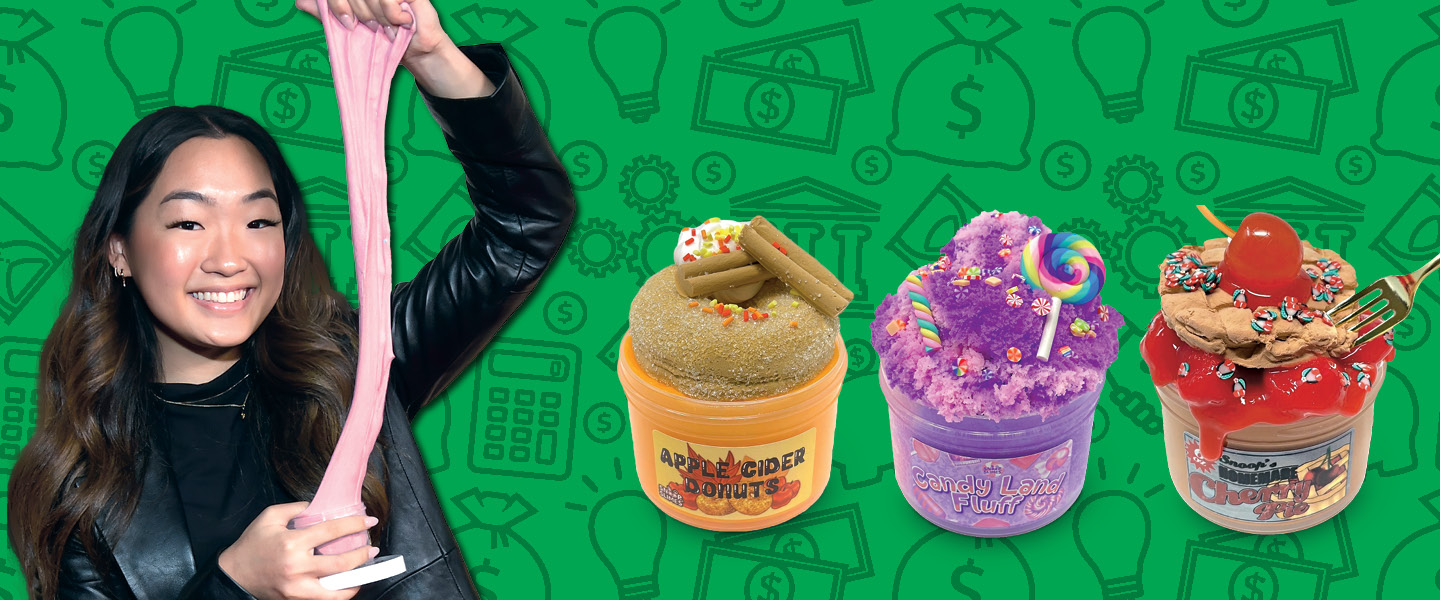Nineteen-year-old Jungmin Kang is building an empire out of slime. It all started six years ago, when she saw a video of homemade slime on Instagram. She noticed that the goo was all the rage with her friends at school too. So she began making her own slime out of glue and borax in her home in Round Rock, Texas, and—with a $200 investment from her dad—launched a company called Snoopslimes in 2017.
At 13, Jungmin sold her first slime products on the online marketplace Etsy for between $8 and $10 each. She also posted videos of her colorful creations on Instagram. Within a year, she was getting more than 100 orders a week and had amassed more than 1 million Instagram followers.
Fast-forward to today, and Jungmin is the CEO of a multimillion-dollar enterprise with 40 employees. Slime products on Snoopslimes’s website—such as Rubber Ducky Bubble Bath and Monet’s Water Lilies—now sell for $15 and up.
“A lot of people told me to wait until I’m older,” Jungmin says. “But being young really allowed me to step out of my comfort zone and just get started without being afraid.”
Nineteen-year-old Jungmin Kang is building an empire out of slime. It all started six years ago, when she saw a video of homemade slime on Instagram. She also noticed that the goo was all the rage with her friends at school. So she began making her own slime out of glue and borax in her home in Round Rock, Texas. With the help of a $200 investment for her dad, Jungmin started a company called Snoopslimes in 2017.
At 13, Jungmin sold her first slime products on the online marketplace Etsy. She charged between $8 and $10 each. She also posted videos of her colorful creations on Instagram. Within a year, she was getting more than 100 orders a week. She had amassed more than 1 million Instagram followers.
Fast-forward to today, and Jungmin is the CEO of a multimillion-dollar enterprise with 40 employees. Slime products on Snoopslimes’s website, like Rubber Ducky Bubble Bath and Monet’s Water Lilies, now sell for $15 and up.
“A lot of people told me to wait until I’m older,” Jungmin says. “But being young really allowed me to step out of my comfort zone and just get started without being afraid.”

